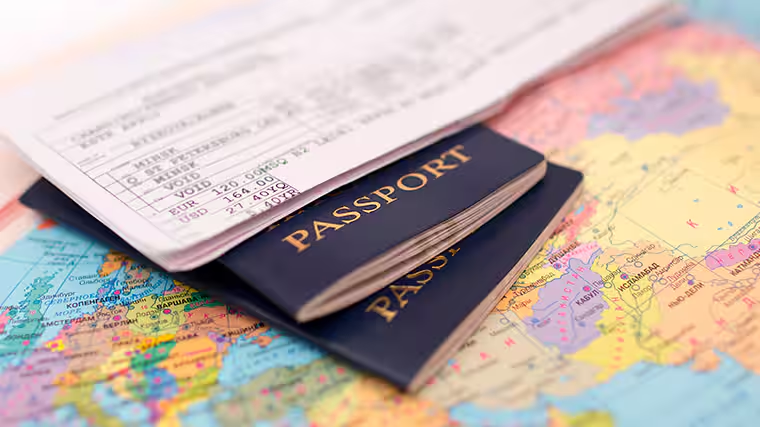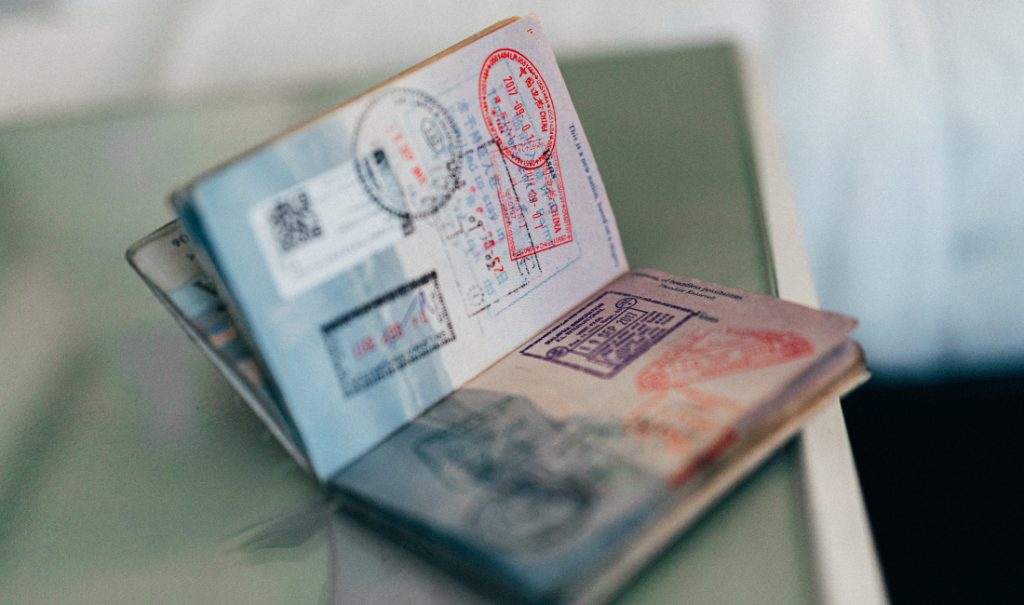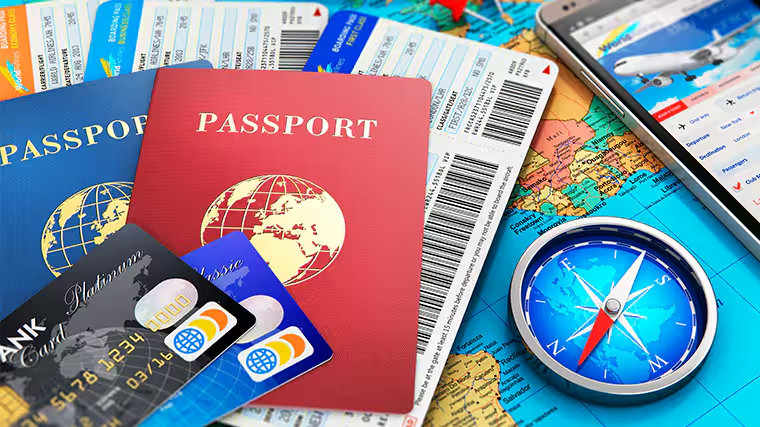Essential Documents and Visas for International Travel: Your Complete 2026 Guide
Traveling internationally is thrilling, whether it’s for leisure, work, study, or adventure. But before stepping onto a plane, it’s crucial to understand the essential documents and visas for international travel. Missing paperwork or a visa can result in denied entry, fines, or other complications, turning your dream trip into a stressful situation. This comprehensive guide will walk you through everything you need to know to travel smoothly in 2026.

1. Why Documents and Visas Matter
International travel isn’t just about buying a ticket and packing your bags. Governments require travelers to carry proper identification and legal documentation for several reasons:
- Security: Ensures travelers are properly vetted before entering a country.
- Legal compliance: Prevents unauthorized work, overstaying, or illegal activities.
- Emergency support: Helps authorities contact you in case of accidents or emergencies.
- Smooth travel experience: Having all documents in order prevents delays or deportation.
2. The Passport: Your Most Important Travel Document
Your passport is the foundation of international travel.
a. Passport Validity
- Most countries require passports to be valid for at least six months beyond your travel date.
- Some destinations require multiple blank pages for visas and stamps.
b. Passport Type
- Standard passport: For general travel.
- Diplomatic or official passports: For government officials or specific purposes.
- Electronic passports (e-passports): Include biometric data for easier identification.
c. Passport Copies
- Keep physical copies in a separate bag.
- Store digital copies in a secure cloud or email account for emergencies.
3. Visa Requirements: Do You Need One?
Visas are official permissions to enter, stay, or work in a foreign country.
a. Types of Visas
- Tourist Visa: For sightseeing or short-term visits.
- Business Visa: For attending meetings, conferences, or business events.
- Student Visa: For studying at educational institutions abroad.
- Work Visa: For legal employment in a foreign country.
- Transit Visa: For passing through a country on your way to another destination.
- Digital Nomad / Remote Work Visa: Growing in popularity in 2026, allowing work while living abroad.
b. How to Check Visa Requirements
- Official government websites or embassy portals.
- Travel advisory platforms like IATA Travel Centre or local consulates.
- Always check entry requirements before booking flights, as rules can change frequently.
c. Common Visa Mistakes to Avoid
- Applying too late and missing your trip.
- Using unofficial agencies that provide incorrect or fraudulent visas.
- Not checking multiple entries if you plan to leave and re-enter a country.
4. Travel Insurance and Health Documents
Health and safety are paramount while traveling abroad. Many countries now require proof of insurance or vaccinations before entry.
a. Travel Insurance
- Covers medical emergencies, trip cancellations, lost luggage, and flight delays.
- Some countries require proof of travel insurance as part of their entry process.
b. Vaccinations and Health Certificates
- Certain destinations require vaccinations (yellow fever, COVID-19, polio, etc.).
- Keep your International Certificate of Vaccination (ICV) handy.
- Some countries now require negative COVID-19 tests or proof of recovery in 2026.
5. Tickets, Accommodation, and Itinerary Documents
Border officials may request evidence of your travel plans.
- Return or onward flight tickets: Prove your intent to leave the country.
- Hotel or accommodation bookings: Confirm your stay and prevent illegal lodging suspicions.
- Itinerary summary: Optional but useful for long trips or multiple-country travel.

6. Financial Documents
Some countries may ask for proof of financial stability:
- Bank statements: Show that you can support yourself during your stay.
- Credit cards or travel money cards: Often required for proof of funds.
- Sponsor letters: Needed if someone else is funding your trip.
7. Special Documents for Specific Travelers
Certain travelers need additional paperwork:
- Minors traveling alone: Parental consent letters, birth certificates.
- Married or divorced travelers: Marriage certificates or divorce papers may be required for dependent visas.
- Business travelers: Invitation letters from companies or organizations.
- Students: Enrollment letters, tuition proof, and financial support documentation.
8. How to Organize Your Documents
Keeping documents organized reduces stress and risk of loss:
a. Travel Wallet or Document Organizer
- Separate compartments for passport, tickets, insurance, and visa copies.
b. Digital Backup
- Store scanned copies securely in cloud storage or email.
- Some apps allow offline access in case of no internet.
c. Checklist System
- Create a pre-travel checklist to ensure all documents are complete and valid.
9. Common Pitfalls to Avoid
- Expired passports or near-expiration: Check early, as renewals may take weeks.
- Wrong visa type: Applying for the incorrect visa can prevent entry.
- Incomplete health documentation: Vaccination or test results missing at border control.
- Lost or stolen documents abroad: Always carry photocopies and digital backups.
10. Tips for First-Time International Travelers
- Double-check entry requirements 2–4 weeks before travel; rules can change.
- Carry essential documents in a secure but accessible place, like a travel neck pouch.
- Keep emergency contacts and embassy information in your wallet or phone.
- Learn basic local laws and customs to avoid trouble at customs or immigration.
- Consider enrolling in government travel programs like Smart Traveler Enrollment Program (STEP) for safety updates.

11. Digital vs. Paper Documents
In 2026, digital documentation is increasingly accepted, but paper backups are still essential:
- Digital copies: Mobile apps, email storage, cloud drives.
- Paper copies: Required in some countries, especially for visas and vaccinations.
- Hybrid approach: Keep originals, photocopies, and digital backups to cover all bases.
12. How to Prepare Before Your Trip
- Create a document folder: Separate by passports, visas, health, accommodation, and tickets.
- Verify all expiry dates: Passport, visa, travel insurance, vaccination certificates.
- Confirm your visa type and duration: Avoid overstaying or violating terms.
- Check entry restrictions: COVID-19, political situations, or natural disaster advisories.
- Print extra copies: Keep with family or friends as a backup.
13. Final Thoughts
Understanding the essential documents and visas for international travel is not just bureaucracy—it’s the foundation for a smooth and worry-free trip. In 2026, travel is easier than ever, but rules are constantly evolving, so preparation is key.
By ensuring your passport is valid, visas are appropriate, insurance is in place, and additional documents are organized, you can focus on the adventure, culture, and experiences of your international journey rather than worrying about paperwork.
Traveling abroad is an opportunity to grow, explore, and create memories that last a lifetime—but it starts with having your documents in perfect order.